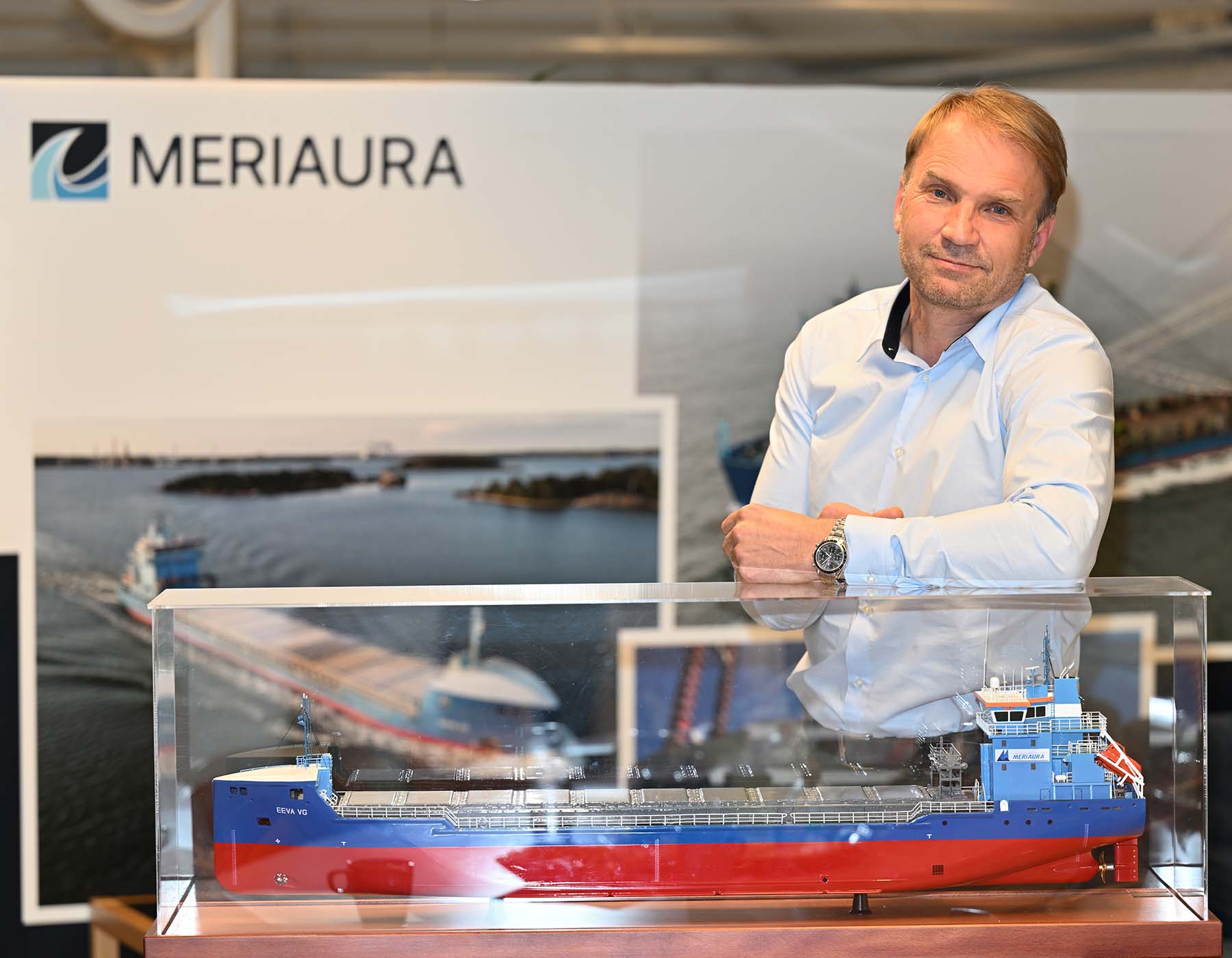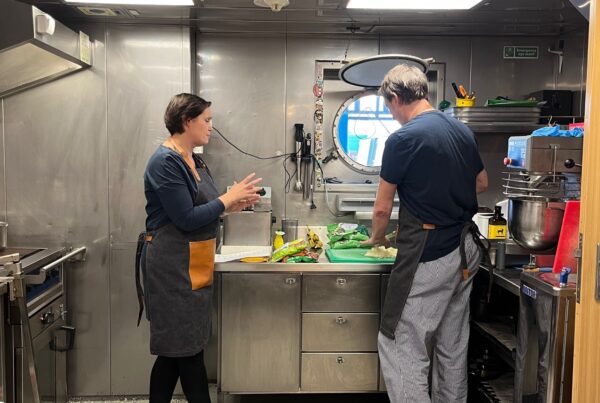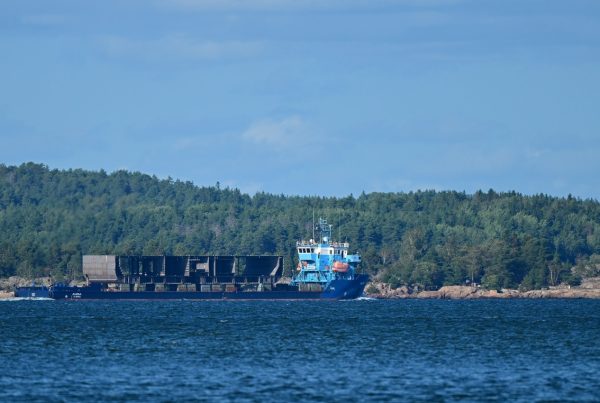At Meriaura’s biofuel plant in Uusikaupunki, southwestern Finland, the newly commissioned biofuel line shines with its newness. Meriaura has been actively using biofuels made from recycled oils in its fleet for a dozen years, but in the summer of 2020 a development project was launched with the aim of developing a biofuel that is more uniform in quality than previously used biofuels and can be standardized for ship use. In addition to the development of the production line, we also invest in the ships by installing equipment that enables the use of the fuel mixture. Mixing equipment can be used to standardize the mixing ratio of bio- and fossil fuel, in which case continuous use of the bio-component is possible, and the location of the refueling point for the bio-fuel, Finland in the case of Meriaura’s own bio-fuel, does not limit use. During the fall, test drives will be carried out on ships with both 100% bio-oil and fuel mixture.
During the development project, efforts have also been made to ensure a larger raw material base by expanding the collection area for used frying fat to the capital region. With these steps, Meriaura will be able to enter into new EcoVoy charter contracts. Just a few years ago, interest in low-emission transport was marginal, but now interest is increasing in two ways: “Companies have their emission reduction goals, and due to the prevailing world situation, the general scarcity of energy has further increased interest in alternative and renewable forms of energy,” says Beppe Rosin, CEO of Meriaura. The price of transport with recycled fuel is slightly higher, but the efficiency of sea transport is known to be good, so the price difference per transported ton remains relatively small. “The customer can take advantage of the emission savings, for example, in their own market communication. As far as I know, other sea carriers do not yet offer this kind of service, so this is not only a realization of the company’s values, but also a competitive advantage for us,” says Rosin.
Meriaura has set a 4% annual emission reduction target for its sea transport. “Along with efficient operation, increasing the use of bio-oil is the most significant means of achieving the goals,” says Rosin. The company has a new construction program underway, in which the renewable fuel selection is to be supplemented with green ammonia in the next few years. Cooperation is carried out e.g. Green with NortH2 Energy. “Domestic fuel increases security of supply and self-sufficiency, which in the changed world situation is increasingly important in addition to environmental aspects,” says Rosin.
In August, Meriaura announced the merger with the listed company Savosolar Oyj. Meriaura’s subsidiary VG EcoFuel, which produces biofuels, is also included in the merging companies. “We want to invest in clean energy both on land and at sea. With the listing, our resources and opportunities to promote the use of renewable energy and applications of the green transition in maritime transport will increase,” sums up Rosin.









